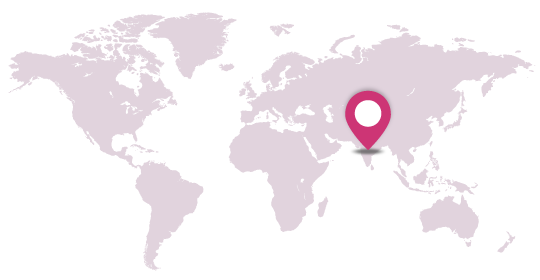OUR WORK AND IMPACT

CHARM (Counseling Husbands to Achieve Reproductive health and Marital equity) 2
Globally, 41% of all pregnancies are unintended, increasing risk for maternal and infant morbidities and mortality. Women with husbands not supportive of contraception are more likely to report contraceptive non-use, and women with sexually abusive husbands are more likely to report contraceptive failure. Such findings highlight the need for family planning (FP) interventions that engage both women and men, focus on eliminating marital sexual violence (MSV) and promote use of effective (low failure risk) spacing contraception including long-acting reversible contraception (LARC). The original CHARM intervention improved contraceptive use and reduced likelihood of MSV, but demonstrated no reduction in unintended pregnancy. CHARM2 includes sessions for men and parallel women-focused GE+FP sessions delivered by a female provider and inclusive of broader contraceptive options, including LARC, as well as a combined couples session. To evaluate the impact of CHARM2, a two armed cluster randomized controlled trial will be conducted with N=1000 married couples from 20 geographic clusters in rural Maharashtra, India. Outcomes will be assessed via pregnancy testing and surveys at baseline and 9 & 18-month follow-ups. Implementation science methods will be used to assess the quality, scalability, and replicability of CHARM2 for uptake by rural health care systems (i.e., sustainability). Should CHARM2 prove effective and sustainable, study findings will have broad implications for FP interventions for low resource settings in India and elsewhere.
Principal Investigator

India
KEY WORDS




